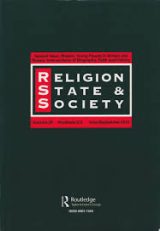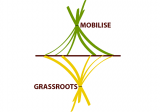Publication |
Democracy, Identity, Culture
Religious American and Secular European Courts? A study of institutional cross-pollination
September 30, 2018
Sociology at the intersection between law and religion
December 23, 2015
Publication |
Security & Foreign Policy
New Book: Instilling Religion in Greek and Turkish Nationalism: A ‘Sacred Synthesis’
November 11, 2012
IME: Identities and modernities in Europe
May 1, 2009 - April 30, 2012









